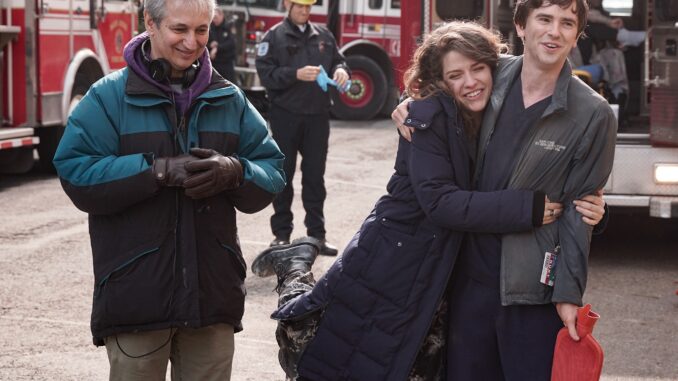
The Good Doctor has quickly become a standout show for many reasons, but one of the most remarkable aspects is how it challenges preconceived notions about life on the autism spectrum.
Through the journey of Dr. Shaun Murphy, a young surgeon with autism and savant syndrome, the show tackles complex topics in ways that many TV series avoid—particularly the often misunderstood realms of sex, intimacy, and relationships. As Shaun navigates his personal and professional life, the series goes beyond the typical portrayal of autism, exploring how individuals on the spectrum experience love and connection in deeply human ways.
For many, The Good Doctor offers a refreshing and much-needed perspective on the realities of relationships for people with autism. Traditionally, characters with autism on TV have been depicted as either completely uninterested in relationships or struggling to understand them in overly simplistic ways. The Good Doctor shatters these stereotypes by showing that, like everyone else, individuals on the spectrum have the capacity for romantic and sexual desires. Shaun, portrayed by Freddie Highmore, is not just a brilliant surgeon—he’s a man with emotional needs, desires, and the ability to build meaningful relationships, even if it doesn’t always come easily.

What makes Shaun’s journey so compelling is the honest portrayal of the challenges he faces in forming relationships. His interactions with people are often filled with awkwardness, misunderstandings, and occasional heartbreak—experiences many can relate to, regardless of whether they are on the autism spectrum. The show doesn’t sugarcoat these struggles; instead, it portrays them with a raw authenticity that makes Shaun’s growth feel real and inspiring. Viewers get to witness his genuine efforts to connect, his vulnerabilities, and his triumphs as he learns how to navigate the complexities of romantic relationships.
In season 3, the show dives even deeper into Shaun’s exploration of intimacy and romance, particularly in his evolving relationship with Lea, his longtime friend. Shaun’s journey toward understanding love and affection is not immediate or without challenges, but it’s a portrayal that feels refreshingly honest. He is depicted not as a character who is incapable of understanding relationships but as someone who is learning to communicate, trust, and open up in new ways. In doing so, The Good Doctor not only challenges societal misconceptions about people with autism but also offers a new, more inclusive narrative about love and relationships.
Shaun’s experiences also help to break down the stereotype that people on the spectrum lack sexual desires or don’t have the ability to form deep, emotional connections. Through his evolving relationship with Lea, the show demonstrates that people with autism can have healthy, complex romantic and sexual lives, just like anyone else. This progressive and nuanced portrayal of intimacy serves as an important reminder that sexuality and emotional bonds are fundamental to the human experience, regardless of neurological differences.
By tackling the topic of sex and relationships on the spectrum with such honesty, The Good Doctor opens the door to important conversations about how we view and understand neurodiversity in society. It asks viewers to consider the real experiences of people with autism and reminds us that every individual’s capacity for love, intimacy, and connection is unique, regardless of their neurological makeup.
In conclusion, The Good Doctor is doing more than just telling a heartwarming story about a young surgeon—it’s redefining the narrative around autism and relationships. It’s helping to dismantle harmful stereotypes and offering a more inclusive, human portrayal of what it means to be on the spectrum. By showing that love, sex, and intimacy are important aspects of Shaun’s life, the show encourages us all to embrace the complexity and richness of human connections, no matter who we are or where we come from.
